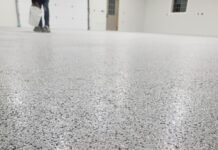In today’s fast-paced commercial environment, maintaining a professional appearance is crucial for any business. One of the key aspects of a commercial property that contributes to its overall aesthetic and functionality is its glass. Windows, glass doors, and partitions not only enhance the architectural beauty of a building but also provide natural light, visibility, and security. However, commercial glass is prone to damage due to various factors such as weather conditions, accidental impacts, or vandalism. Thus, timely and efficient repair for commercial glass becomes essential for maintaining safety, aesthetics, and operational efficiency.
Understanding the Importance of Commercial Glass Repair
Repair for commercial glass is not just about fixing a broken window or replacing a cracked pane. It involves a comprehensive understanding of the material, its installation, and the potential implications of neglecting damage. Commercial glass serves multiple purposes:
- Safety and Security: Cracked or broken glass poses a safety risk to employees and customers. It can lead to accidents and may compromise the security of the premises, making it susceptible to break-ins.
- Energy Efficiency: Damaged glass can lead to increased energy costs. Gaps and cracks can allow conditioned air to escape, forcing heating and cooling systems to work harder and increasing utility bills.
- Aesthetic Appeal: The appearance of a building significantly impacts first impressions. Broken or damaged glass can detract from the professionalism of a business, affecting customer perceptions and potentially harming business reputation.
- Compliance with Regulations: Many regions have building codes and regulations that require commercial properties to maintain certain safety standards. Neglecting necessary repairs can result in legal implications and financial penalties.
Common Types of Damage to Commercial Glass
Understanding the types of damage that can occur helps in identifying when to seek Repair for Commercial Glass. Common issues include:
- Cracks and Chips: Small cracks or chips can develop from thermal stress, impacts, or accidents. If left untreated, these imperfections can spread, leading to complete glass failure.
- Scratches: Surface scratches can occur from cleaning or accidental contact. While they may seem minor, they can affect visibility and aesthetics.
- Water Damage: Improper installation or sealing can lead to moisture infiltration, resulting in foggy or stained glass. This not only affects visibility but can also promote mold growth.
- Seal Failure: Insulated glass units (IGUs) rely on an airtight seal to function effectively. A broken seal can lead to condensation between panes, compromising energy efficiency and visibility.
The Repair Process: What to Expect
When seeking repair for commercial glass, it is essential to understand the typical process involved:
- Assessment: A qualified technician will conduct a thorough inspection of the damaged glass. This assessment will determine the extent of the damage and whether repair or replacement is the best option.
- Recommendations: Based on the assessment, the technician will provide recommendations. Minor cracks and chips can often be repaired, while significant damage may require glass replacement.
- Repair or Replacement: If repair is feasible, specialized techniques and materials will be used to restore the glass to its original condition. In cases where replacement is necessary, the technician will ensure the new glass meets safety and energy efficiency standards.
- Final Inspection: After the repair or replacement, a final inspection will be conducted to ensure that the work meets industry standards and the client’s expectations.
Choosing the Right Commercial Glass Repair Service
When it comes to repair for commercial glass, selecting the right service provider is crucial. Here are some factors to consider:
- Experience and Expertise: Choose a company with a proven track record in commercial glass repair. Look for certifications, reviews, and a portfolio of past work.
- Prompt Response: Time is of the essence when dealing with damaged glass. A reliable service provider should offer prompt assessments and repairs to minimize downtime.
- Quality Materials: Ensure that the repair service uses high-quality materials that comply with industry standards for safety and performance.
- Comprehensive Services: Opt for a provider that offers a range of services, including emergency repairs, routine maintenance, and glass replacement.
Preventative Measures for Long-Term Care
While repair for commercial glass is essential, taking preventative measures can significantly reduce the likelihood of damage:
- Regular Inspections: Schedule routine inspections to identify and address potential issues before they escalate.
- Proper Cleaning: Use appropriate cleaning techniques and materials to avoid scratching or damaging the glass surface.
- Weather Protection: Consider installing protective barriers or awnings to shield glass from extreme weather conditions.
- Employee Training: Educate staff on the importance of handling glass fixtures carefully and reporting any damage promptly.
Conclusion
Repair for commercial glass is a vital aspect of maintaining a safe, efficient, and visually appealing business environment. By understanding the importance of timely repairs and selecting a qualified service provider, businesses can protect their assets, enhance their aesthetic appeal, and ensure compliance with safety regulations. Regular maintenance and preventative measures can further extend the lifespan of commercial glass, safeguarding investments and promoting a positive impression on customers.








